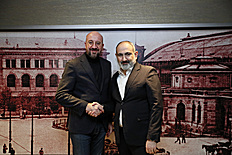 1670x1113px - 644 Kb
1670x1113px - 644 Kb 1670x1113px - 499 Kb
1670x1113px - 499 Kb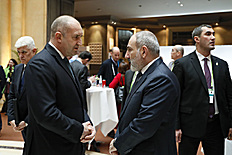 1670x1113px - 432 Kb
1670x1113px - 432 Kb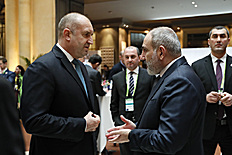 1670x1113px - 470 Kb
1670x1113px - 470 Kb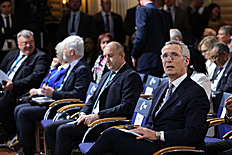 1670x1113px - 438 Kb
1670x1113px - 438 Kb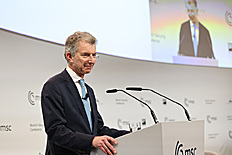 1670x1113px - 282 Kb
1670x1113px - 282 Kb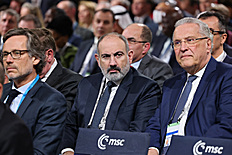 1670x1113px - 517 Kb
1670x1113px - 517 Kb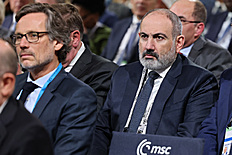 1670x1113px - 549 Kb
1670x1113px - 549 Kb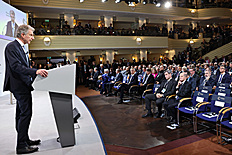 1670x1113px - 683 Kb
1670x1113px - 683 Kb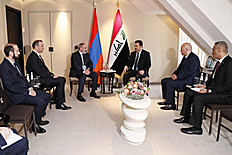 1670x1113px - 541 Kb
1670x1113px - 541 Kb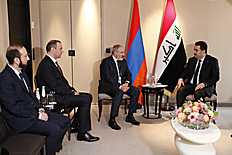 1670x1113px - 453 Kb
1670x1113px - 453 Kb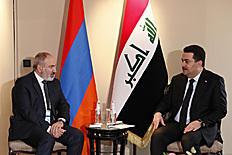 1670x1113px - 455 Kb
1670x1113px - 455 Kb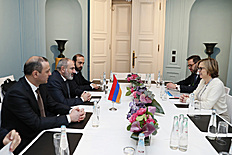 1670x1113px - 440 Kb
1670x1113px - 440 Kb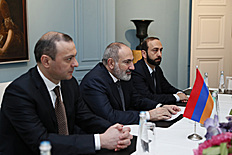 1670x1113px - 338 Kb
1670x1113px - 338 Kb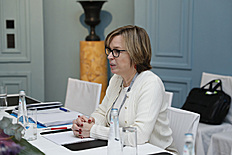 1670x1113px - 389 Kb
1670x1113px - 389 Kb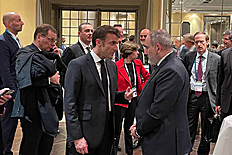 1670x1113px - 424 Kb
1670x1113px - 424 Kb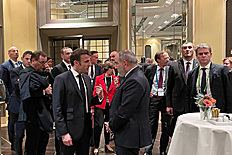 1670x1113px - 369 Kb
1670x1113px - 369 Kb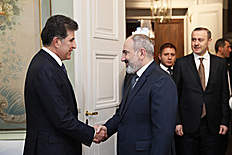 1670x1113px - 364 Kb
1670x1113px - 364 Kb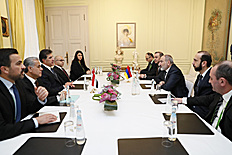 1670x1113px - 428 Kb
1670x1113px - 428 Kb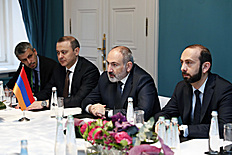 1670x1113px - 416 Kb
1670x1113px - 416 Kb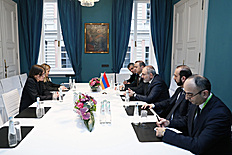 1670x1113px - 452 Kb
1670x1113px - 452 Kb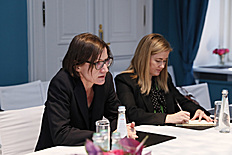 1670x1113px - 334 Kb
1670x1113px - 334 Kb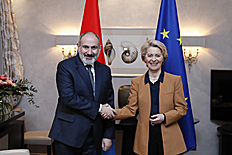 1670x1113px - 421 Kb
1670x1113px - 421 Kb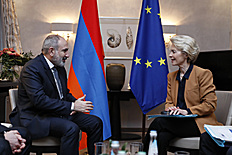 1670x1113px - 439 Kb
1670x1113px - 439 Kb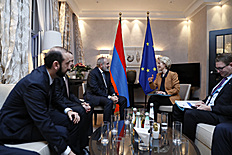 1670x1113px - 522 Kb
1670x1113px - 522 Kb 1670x1113px - 459 Kb
1670x1113px - 459 Kb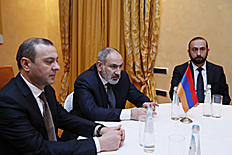 1670x1113px - 411 Kb
1670x1113px - 411 Kb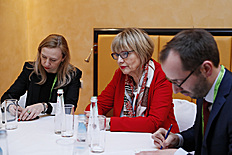 1670x1113px - 465 Kb
1670x1113px - 465 Kb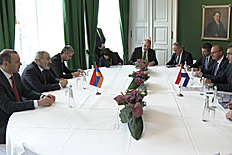 1920x1080px - 636 Kb
1920x1080px - 636 Kb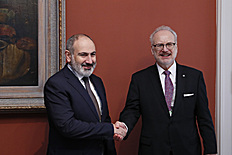 1670x1113px - 398 Kb
1670x1113px - 398 Kb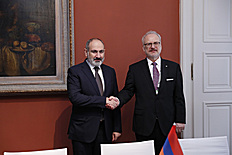 1670x1113px - 429 Kb
1670x1113px - 429 Kb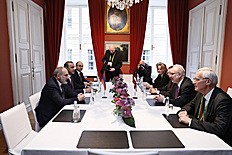 1670x1113px - 524 Kb
1670x1113px - 524 Kb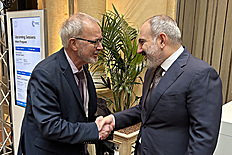 1670x1113px - 725 Kb
1670x1113px - 725 Kb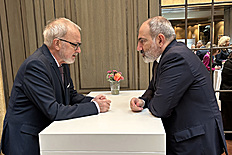 1670x1113px - 603 Kb
1670x1113px - 603 Kb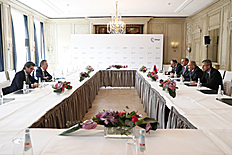 1670x1113px - 541 Kb
1670x1113px - 541 Kb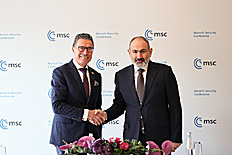 1670x1113px - 352 Kb
1670x1113px - 352 Kb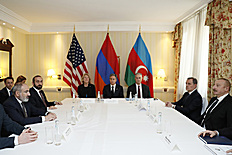 1670x1113px - 397 Kb
1670x1113px - 397 Kb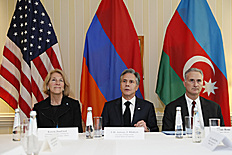 1670x1113px - 455 Kb
1670x1113px - 455 Kb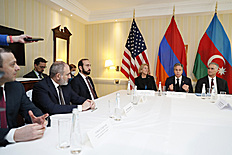 1670x1113px - 394 Kb
1670x1113px - 394 Kb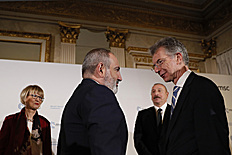 1670x1113px - 341 Kb
1670x1113px - 341 Kb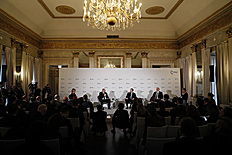 1670x1113px - 568 Kb
1670x1113px - 568 Kb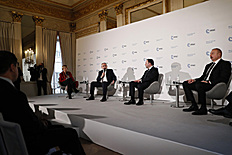 1670x1113px - 346 Kb
1670x1113px - 346 Kb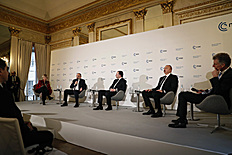 1670x1113px - 445 Kb
1670x1113px - 445 Kb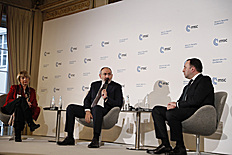 1670x1113px - 414 Kb
1670x1113px - 414 Kb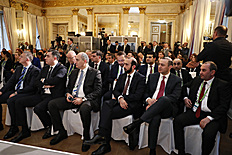 1670x1113px - 608 Kb
1670x1113px - 608 Kb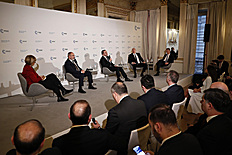 1670x1113px - 493 Kb
1670x1113px - 493 Kb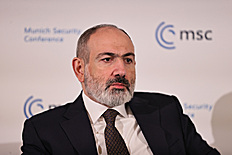 1670x1113px - 316 Kb
1670x1113px - 316 Kb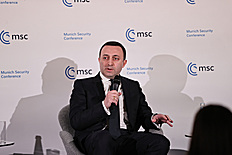 1670x1113px - 284 Kb
1670x1113px - 284 Kb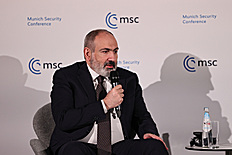 1670x1113px - 372 Kb
1670x1113px - 372 Kb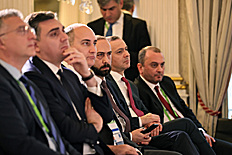 1670x1113px - 506 Kb
1670x1113px - 506 Kb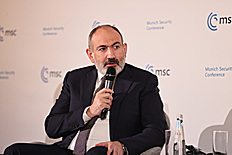 1670x1113px - 312 Kb
1670x1113px - 312 Kb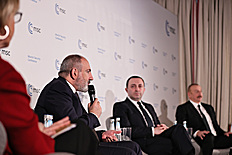 1670x1113px - 353 Kb
1670x1113px - 353 Kb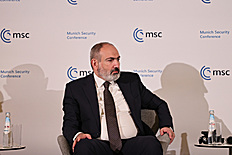 1670x1113px - 357 Kb
1670x1113px - 357 Kb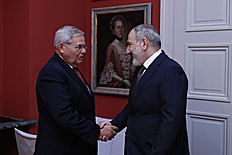 1670x1113px - 361 Kb
1670x1113px - 361 Kb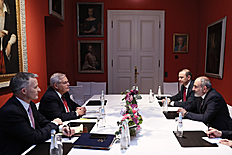 1670x1113px - 440 Kb
1670x1113px - 440 Kb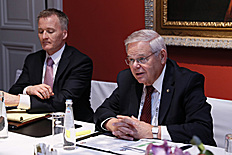 1670x1113px - 412 Kb
1670x1113px - 412 Kb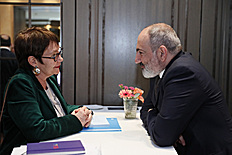 1670x1113px - 407 Kb
1670x1113px - 407 Kb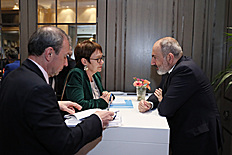 1670x1113px - 398 Kb
1670x1113px - 398 Kb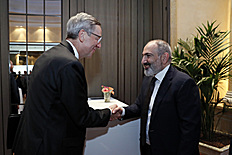 1670x1113px - 336 Kb
1670x1113px - 336 Kb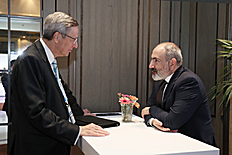 1670x1113px - 455 Kb
1670x1113px - 455 Kb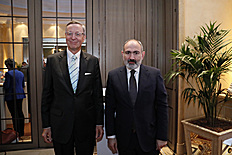 1670x1113px - 506 Kb
1670x1113px - 506 Kb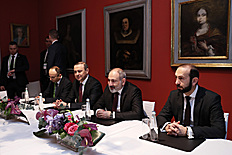 1670x1113px - 437 Kb
1670x1113px - 437 Kb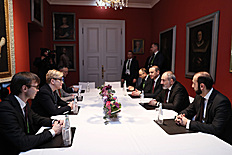 1670x1113px - 369 Kb
1670x1113px - 369 Kb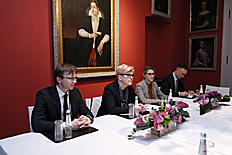 1670x1113px - 441 Kb
1670x1113px - 441 Kb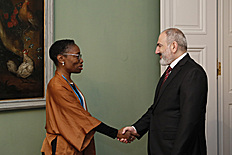 1670x1113px - 407 Kb
1670x1113px - 407 Kb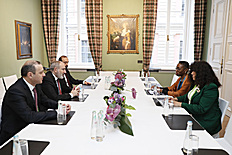 1670x1113px - 542 Kb
1670x1113px - 542 Kb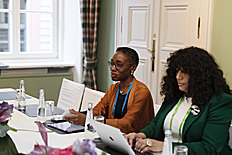 1670x1113px - 376 Kb
1670x1113px - 376 Kb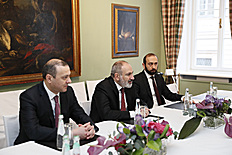 1670x1113px - 475 Kb
1670x1113px - 475 Kb
more 65 photos
Prime Minister Nikol Pashinyan, who is in Munich on a working visit, had an informal meeting with the President of the European Council, Charles Michel.
The interlocutors referred to issues related to regional security and stability, as well as Armenia-EU cooperation.
* * *
Prime Minister Nikol Pashinyan participated in the opening ceremony of the Munich Security Conference.
Presidents, heads of governments and foreign ministers of several dozen countries are participating in the Munich Security Conference. In particular, French President Emmanuel Macron, German Chancellor Olaf Scholz, Dutch Prime Minister Mark Rutte, US Vice President Kamala Harris, US Secretary of State Antony Blinken, NATO Secretary General Jens Stoltenberg, OSCE Secretary General Helga Schmid and others attended the conference.
Within the framework of the conference, a number of bilateral meetings of Prime Minister Pashinyan are shceduled.
* * *
Prime Minister Nikol Pashinyan met with the Prime Minister of the Republic of Iraq Mohammed Shia al-Sudani in the sidelines of the Munich Security Conference.
The interlocutors attached importance the development of Armenian-Iraqi relations in various directions, including political and economic. In that regard, the parties emphasized the need to deepen trade and economic ties between the two countries, expand and strengthen cooperation of businessmen.
An agreement was reached to organize a meeting of the Armenian-Iraqi intergovernmental commission in the near future, during which further steps and joint programs will be outlined.
The sides also highlighted mutually beneficial cooperation on international platforms.
* * *
In the sidelines of the Munich Security Conference, Prime Minister Nikol Pashinyan had a meeting with Catherine De Bolle, Executive Director of Europol.
Issues related to the further development of cooperation in the fight against crime were discussed.
The Prime Minister referred to the reforms and programs implemented in Armenia’s police system, expressing hope that cooperation will also develop in this direction.
Catherine De Bolle assessed the cooperation with Armenian law enforcement bodies as effective and emphasized Europol's readiness to continue close cooperation with Armenian partners.
* * *
In the sidelines of the Munich Security Conference, Prime Minister Pashinyan had a short meeting with French President Emmanuel Macron.
The interlocutors exchanged ideas on regional security and stability issues.
* * *
Prime Minister of Armenia Nikol Pashinyan and President of Iraqi Kurdistan Nechirvan Barzani met in the sidelines of the Munich Security Conference.
The interlocutors emphasized the continuous development of trade and economic cooperation and noted that the volume of bilateral trade is growing year by year. In that context, the expansion and deepening of business ties was emphasized.
The sides also exchanged thoughts on other topics of regional importance.
* * *
In the sidelines of the Munich Security Conference, Prime Minister Nikol Pashinyan had a meeting with Mirjana Spoljaric, President of the International Committee of the Red Cross.
The Prime Minister emphasized the importance of close cooperation between the Armenian Government and ICRC. Nikol Pashinyan noted that the ICRC is the only international organization operating in Nagorno-Karabakh, which, especially given Azerbaijan's illegal blockade of the Lachin Corridor, significantly contributes to alleviating and solving various problems arising from the humanitarian crisis in Nagorno-Karabakh by providing humanitarian support. According to the Prime Minister, the ICRC has key importance in the South Caucasus region.
The President of the ICRC stated that they will continue to contribute to the solution of the humanitarian problems of the NK population according to their mandate. Mrs. Spoljaric also mentioned the fact of effective cooperation with the Armenian government.
The Prime Minister thanked the ICRC for providing communication between the Armenian captives illegally held in Azerbaijan until now and their families.
* * *
In the sidelines of the Munich Security Conference, Armenian Prime Minister Nikol Pashinyan met with European Commission President Ursula von der Leyen.
The interlocutors discussed various issues related to Armenia-European Union cooperation.
Nikol Pashinyan emphasized that the EU is the main partner of Armenia in the implementation of institutional reforms and thanked for the assistance provided in that direction.
Ursula Von der Leyen highly appreciated the process of democratic reforms in Armenia and expressed the readiness of the EU to continue support programs for our country.
The parties exchanged ideas on the projects to be implemented in Armenia within the framework of the Economic and Investment Plan of the EU’s Eastern Partnership.
Reference was made to the situation in the South Caucasus region.
* * *
The meeting of Prime Minister of Armenia Nikol Pashinyan and OSCE Secretary General Helga Schmid took place in Munich.
Prime Minister Pashinyan referred to the humanitarian crisis in Nagorno-Karabakh resulted by Azerbaijan's illegal closure of the Lachin Corridor and emphasized the need for continuous and consistent steps by the international community to solve the problem.
The parties referred to the activities of the civilian mission of the European Union in Armenia and expressed hope that it will contribute to the strengthening of peace and stability.
The sides exchanged thoughts on the processes taking place in the region and other issues of mutual interest.
* * *
Prime Minister of Armenia Nikol Pashinyan met with Prime Minister of Croatia Andrej Plenković in the sidelines of the Munich Security Conference.
Nikol Pashinyan noted that the first visit of the Croatian Foreign Minister to Armenia took place recently, which has historical significance in bilateral relations. The Prime Minister expressed hope that today's meeting will give a new impetus to the further development and strengthening of Armenian-Croatian relations.
The Prime Minister of Croatia noted that the government headed by him is also interested in expanding cooperation with Armenia in various fields.
Next, the interlocutors referred to the situation in the South Caucasus, the developments taking place around Nagorno Karabakh.
Prime Minister Pashinyan noted that as a result of Azerbaijan's illegal blockade of the Lachin Corridor, a humanitarian crisis has arisen in Nagorno-Karabakh, Azerbaijan has also blocked electricity supply for more than a month, and there are serious problems with gas supply. According to Nikol Pashinyan, all this causes not only a humanitarian but also an environmental crisis. The Prime Minister emphasized the international community's addressed and consistent response to the issue.
The parties also referred to the activities of the EU’s civilian mission in Armenia and emphasized the importance of strengthening stability and peace in the region.
Prime Minister Pashinyan invited his Croatian counterpart to Armenia on an official visit. The invitation was graciously accepted.
* * *
Prime Minister Nikol Pashinyan continues to hold bilateral meetings with foreign partners within the framework of the Munich Security Conference.
On February 18, Nikol Pashinyan first met with the President of Latvia Egils Levits.
The interlocutors discussed Armenian-Latvian relations, as well as various issues of bilateral interest.
Prime Minister Pashinyan referred to the institutional reforms being carried out in Armenia and highlighted the importance of the European Union's continuous support for their effective implementation. The Prime Minister noted that the development and strengthening of democracy is of strategic importance for the Armenian Government.
Nikol Pashinyan and Egils Levits also exchanged thoughts on the processes taking place in the South Caucasus region, the Nagorno-Karabakh issue.
The sides highlighted the activity of the civilan mission of the European Union in our country. The parties expressed hope that it will contribute to stability and peace.
* * *
Prime Minister Nikol Pashinyan had a meeting with the President of the European Investment Bank Werner Hoyer in Munich.
The Prime Minister emphasized the cooperation between the Government of the Republic of Armenia and the EIB and the joint investment programs implemented in various fields. Nikol Pashinyan emphasized that the projects being implemented in cooperation with the EIB are of great importance for the business circles and citizens of our country, since the projects are aimed at financing the private sector and improving various infrastructure nodes. The Prime Minister also noted that the Armenian government is interested in discussing the opportunities for implementing new programs with the EIB.
Werner Hoyer assessed the cooperation with the Armenian government as effective and noted that the EIB is ready to discuss the possibilities of implementing new projects in different directions with Armenian partners.
* * *
Prime Minister Nikol Pashinyan had a meeting with former NATO Secretary General Anders Fogh Rasmussen in Munich.
The interlocutors discussed the developments taking place in the South Caucasus region and emphasized the implementation of consistent steps in the direction of strengthening stability and peace.
* * *
In the sidelines of the Munich Security Conference, a trilateral meeting between Prime Minister of Armenia Nikol Pashinyan, US Secretary of State Antony Blinken and President of Azerbaijan Ilham Aliyev took place.
At the meeting, reference was made to the progress of work on the draft peace treaty between Armenia and Azerbaijan, as well as the unblocking of regional transport infrastructure and the implementation of delimitation between the two countries in line with the agreement reached in Prague.
Prime Minister Pashinyan reaffirmed the determination of the Armenian side to achieve a treaty that will truly guarantee long-term peace and stability in the region.
At the same time, Nikol Pashinyan emphasized the fact of Azerbaijan's illegal blockade of the Lachin Corridor and the resulting humanitarian, environmental and energy crisis in Nagorno-Karabakh.
Ensuring the continuity of the peace process between Armenia and Azerbaijan was emphasized.
* * *
Prime Minister Nikol Pashinyan took part in the panel discussion on South Caucasus issues in the sidelines of the Munich Conference headlined “Moving Mountains? Building Security in the South Caucasus.” Georgian Prime Minister Irakli Garibashvili, Azerbaijani President Ilham Aliyev and OSCE Secretary General Helga Schmid also took part in the discussion.
Below are the questions addressed to Prime Minister Pashinyan by the moderator of the discussion and the Prime Ministers answers.
Question - Mr. Prime Minister, I would like to ask you to comment on the consequences of Russia's war against Ukraine on your country.
Prime Minister Nikol Pashinyan - Thank you. I would like to thank you for organizing this format. I agree, maybe this is a historical meeting, but it is important to understand the context of the history that is being created at this moment, because we can have different results or consequences, and I think we should be result-oriented. This is our approach.
As for your question, global instability cannot have a positive impact on our regional situation, because you know that for a long time now, all international attention is understandably focused on Ukraine, and this creates new risks for our region. It is very important that our region also receives international attention, because I think there are many risks.
What is our approach? We remain committed to our democratic reform agenda because we believe that democratic reforms, the development of democratic institutions, the rule of law, human rights, and an independent judiciary will improve the situation around our region. We believe that this is beneficial for the entire region, and very important for us in terms of doing our part.
Question - Mr. Pashinyan, you are now also helping Turkey with this terrible earthquake. Do you think there are prospects for improving relations between Armenia and Turkey? Is it possible that this terrible disaster can be a reason for a change in your relationship?
Prime Minister Nikol Pashinyan - Thank you. You know, we had only humanitarian motives behind the decision to send humanitarian aid and rescuers to Turkey, because millions of people in our neighborhood were suffering, but during this time we witnessed a very positive reaction from the Turkish government, and if this move has political consequences, it will be even better. But our initial motive was purely humanitarian, and as we stated, we are ready to provide as much humanitarian aid as our capabilities allow, and we are ready to do it.
As for the political dialogue, to be honest, before the earthquake, we had already established a political dialogue through special representatives, and I think that dialogue is very important. I mean in terms of creating an appropriate atmosphere in which these decisions were made. And we believe that the possibilities of making political decisions in the context of this humanitarian dialogue will be even higher. We are ready to move forward and we believe that the establishment of diplomatic relations with Turkey and the opening of our border will have a very positive effect not only in terms of our regional situation, but also in terms of the international situation.
Question - Now I want to return to the question that President Aliyev alluded to at the beginning. We are talking about a war that started two years ago, and now we see a situation that still remains critical. We are not conducting negotiations here, but the international community is concerned about the humanitarian situation, and we, like everyone else, follow the humanitarian situation in Turkey, in the same way we follow the existing problem there. From the outside, we see that the Lacin Corridor is blocked. Mr. Prime Minister, I would like you to talk a little about confidence building efforts. Of course, we would like to see a decrease in tension through small steps that will bring us closer to the settlement of this conflict.
Prime Minister Nikol Pashinyan - Thank you. You are right. Lachin Corridor has been blocked for already 70 days. Unfortunately, there is now a humanitarian crisis in Nagorno-Karabakh, as well as an energy crisis, because the electricity supply to Nagorno-Karabakh is suspended, the gas supply is also suspended, and we have counted that the gas supply has been suspended at least 10 times in the last 70 days, and this is a problem that deserves attention. Our position is as follows. In the trilateral statement of November 9, 2020, we have very specific points regarding the Lachin Corridor, and according to that statement, it is the duty of Azerbaijan and the Russian peacekeepers to keep the Lachin Corridor open, but now, unfortunately, we have a completely different situation. We believe that international attention should be focused on this situation, because we are afraid that the continuation of this situation may cause irreversible humanitarian consequences for the Armenians of Nagorno-Karabakh.
Question - As I said, we are not conducting negotiations here, but I would like to give Prime Minister Pashinyan an opportunity to respond to President Aliyev.
Prime Minister Nikol Pashinyan - Thank you. As for Nagorno Karabakh, the president mentioned the trilateral declaration, and Nagorno Karabakh is present in that declaration, and the signature of the President of Azerbaijan is present under this document.
And we have the Lachin Corridor, which was supposed to operate freely. By the way, according to that trilateral declaration, the Lachin Corridor was supposed to be outside the control of Azerbaijan, and this was according to the signature of the President of Azerbaijan. Recently, a group of Armenian children from Nagorno-Karabakh tried to travel through the Lachin Corridor and were stopped. Some masked Azerbaijanis broke into the bus, and the children were screaming. This was the last attempt of Nagorno-Karabakh Armenians to move freely through the Lachin Corridor.
President Aliyev also talked about the destroyed mosques. I would like to note that in 2017, several mosques were demolished in Azerbaijan to build new roads. By the way, during the Soviet years, 1560 mosques were destroyed in Azerbaijan, and this was a common thing for the Soviet Union. Churches and mosques were also destroyed in Armenia. You know, the Armenians of Nagorno-Karabakh should not pay the debt of the Soviet years. It is a very dangerous narrative, because I am afraid, it seems that Azerbaijan is trying to give a religious context to this whole situation. It is very dangerous. There is no religious context in this conflict.
And by the way, we have a Muslim minority in our country, and we have a functioning mosque, this is the reality. Do you know what causes concern in Azerbaijan's narrative? Its rhetoric creates the impression, and perhaps it is so, that Azerbaijan has adopted a policy of revenge. It is possible that this is Azerbaijan's policy. But as mentioned, we have a very complicated history, and I just said, yes, maybe this is a historic meeting, but for what purpose do we want to use it? To stir up intolerance, hatred, aggressive rhetoric in our region, or the contrary, to use this platform to improve the situation?
We believe that this platform should be used for constructive purposes. Of course, we can now tell many stories about enmity, but what is the role of leaders: to deepen that enmity or to use our opportunities, our mandates? I am proud that I, our Government, even after the catastrophic war, was able to hold free, democratic elections in our country, which were recognized by the whole world as free and democratic, transparent and competitive. And as I said, from our point of view, the solution is democracy, the solution is transparency, the solution is dialogue, the solution is respect for all countries. And we are ready to work in that direction. Thank you.
Question - Mr. Prime Minister, you have mentioned several times that the CSTO is not very effective at the moment, and the question is raised that Armenia can leave it. I would like you to comment on the issue
Prime Minister Nikol Pashinyan - You know, we had certain concerns regarding CSTO, and these concerns have been public. We have raised these issues with our colleagues, we have actually made them public, and the concerns are still present. We are working towards finding solutions to those questions and concerns.
* * *
In the sidelines of the Munich Security Conference, Prime Minister Nikol Pashinyan had a meeting with Bob Menendez, chairman of the US Senate Foreign Relations Committee.
The interlocutors discussed the developments taking place in the South Caucasus region, the situation around Nagorno Karabakh.
The Prime Minister referred to the difficult humanitarian situation in Nagorno-Karabakh resulted by the illegal blocking of the Lachin Corridor by Azerbaijan. The consistent attention and targeted response of the international community in this direction was emphasized.
* * *
In the sidelines of the Munich Security Conference, Prime Minister Nikol Pashinyan had a meeting with Odile Renaud-Basso, President of the European Bank for Reconstruction and Development.
The Prime Minister noted that the EBRD programs are of great importance for the reforms initiated by the Armenian government in terms of improving the business environment, promoting the competitiveness of the private sector, developing capital markets, urban lighting and other directions. The Head of the Executive expressed hope that in the future the volume of investments carried out by the EBRD will increase and will involve the most diverse sectors of the economy. Nikol Pashinyan attached importance to the EBRD programs in the direction of small and medium businesses in our country and added that the goal of the Armenian government is to give new momentum to the development and activation of the business sector.
Odile Renaud-Basso emphasized that the EBRD is ready to continue and expand its assistance to the Armenian government in the programs planned in various fields.
Prime Minister Pashinyan also had a meeting with Michael Harms, Executive Director of the German Committee on Eastern European Economic Relations in Berlin. Issues related to bilateral economic cooperation and expansion of business ties were discussed.
* * *
In the sidelines of the Munich Security Conference, Prime Ministers of Armenia and Lithuania, Nikol Pashinyan and Ingrida Šimonytė, met on February 19.
The interlocutors touched on issues related to the development of cooperation between Armenia and Lithuania in various fields. The sides exchanged thoughts on Armenia-EU relations.
Prime Minister Pashinyan referred to the developments taking place in the South Caucasus, the situation around Nagorno Karabakh, the humanitarian, environmental and energy crisis in Nagorno-Karabakh resulted by Azerbaijan's blocking of the Lachin Corridor. In this context, the consistent and continuous reaction of the international community to the aggressive actions of Azerbaijan was highlighted.
* * *
In the sidelines of the Munich Security Conference, Prime Minister Nikol Pashinyan had a meeting with the Chairman of the International Crisis Group Comfort Ero.
Reference was made to the processes taking place in the South Caucasus, the situation around Nagorno Karabakh, the humanitarian, environmental and energy crisis in Nagorno-Karabakh resulted by Azerbaijan's illegal blockade of the Lachin Corridor.
The development and continuity of cooperation with the International Crisis Group was highlighted.
Prime Minister Pashinyan's working visit to Munich has ended.